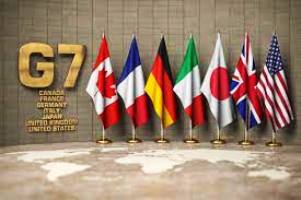The climate, energy and environment ministers of the leading Western industrialised nations (G7) have agreed on a coal phase-out by 2035 at their meeting in Italy, British and Italian officials said on Monday.
The decision was confirmed by the German Federal Ministry for Economic Affairs on Monday evening.
A ministry spokesman said that Germany had played a key role in the decision to set a clear end date for coal-fired power generation for all G7 countries.
British Energy Secretary Andrew Bowie had previously publicised the agreement.
“Yes, we have an agreement to phase out coal in the first half of the 2030s,” he told the Class
CNBC portal on the sidelines of the G7 ministerial meeting at the Venaria Reale Palace on the outskirts of Turin.
“This is a historic agreement that we were unable to reach at COP 28 in Dubai 2023,” Bowie added.
The G7 ministers hope to issue a final declaration on Tuesday.
Germany’s Environment Minister Steffi Lemke and State Secretary for Economic Affairs Anja Hajduk were in Turin for the meeting. Italy holds the rotating G7 presidency this year.
Anti-G7 protests broke out in Turin, Italy’s fourth largest city on Monday on the fringes of the meeting.
Italy’s ANSA news agency reported that demonstrators had attempted to break through to the participants’ quarters, but the police held them back first with shields and tear gas, water cannon and truncheons.
Protesters threw eggs, bottles and smoke grenades at the police.
In 2020, Germany passed a law phasing-out coal by 2038. However, Chancellor Olaf Scholz’s coalition of SPD, FDP and Greens had agreed in the coalition agreement at the end of 2021 to “ideally” bring it forward to 2030.
The Group of Seven (G7) is a forum of the heads of state and government of seven major industrialized nations.
These include Britain, France, Germany, Italy, Japan, Canada and the U.S. The European Union is also represented at the G7’s meetings.
NAN


